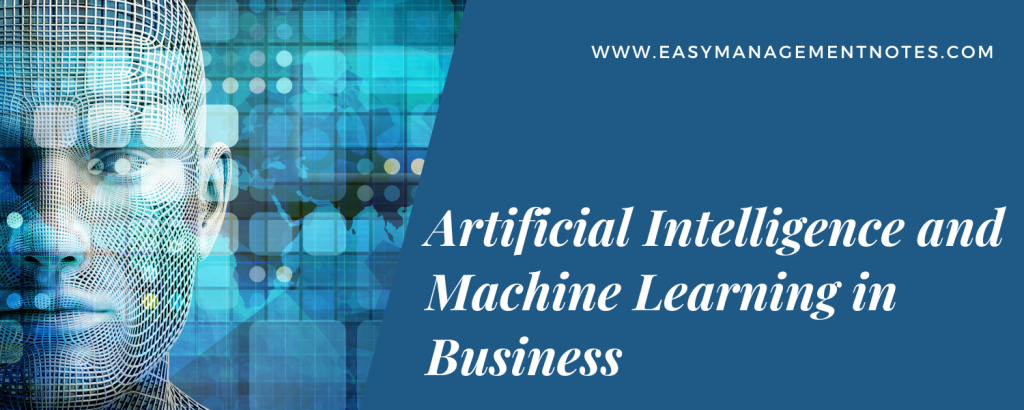
Hi Alexa! Did you know Alexa is an example of Artificial Intelligence? Probably, we all interact with Artificial Intelligence (AI) in our day-to-day lives but don’t even realize it. Like any other industry, AI is widely used in the corporate world.
When people hear about AI in business, they immediately think about automation. Although certain uses of AI do encompass the automation of tasks formerly carried out by humans, this merely grazes the outer layer of the vast potential held by AI and machine learning.
Let’s delve into understanding the advantages of AI in the Business context and study some instances of AI, and Machine Learning.
What is artificial intelligence?
It refers to making computers act like humans by doing things like thinking, learning, and solving problems. Machine learning and deep learning are parts of AI.
AI is used in real life for things like search engines, talking to computers, self-driving cars, and suggesting things you might like on apps like Spotify and Netflix.
What is machine learning?
Machine Learning, or ML resides under the umbrella of Artificial Intelligence (AI) and is categorized within the realm of “restricted memory.” In this domain, the machine, or AI entity, possesses the capability to progressively learn and evolve.
Machine learning proves valuable in translating extensive collections of data – which are progressively gathered by interconnected devices and the Internet of Things – into a comprehensible framework for human understanding.
Why is AI/ML important for businesses?
It’s widely acknowledged that data has become an increasingly crucial asset for businesses, experiencing exponential growth in global generation and storage. However, amassing data serves little purpose without effective utilization. Dealing with the massive influx of data becomes a daunting task without the support of automated systems.
Artificial intelligence, machine learning, and deep learning provide organizations with the means to derive value from the extensive data they amass. This includes offering business insights, automating operations, and enhancing overall system capabilities.
The potential of AI/ML is profound, capable of revolutionizing various facets of a business, aiding in the attainment of quantifiable outcomes, such as:
- Offering differentiated digital services
- Automating business operations
- Using customer insights to inform decision-making
- Increasing customer satisfaction
- Reducing costs
- Increasing revenue
AI/ML use cases and examples
Let’s examine real-world scenarios and instances in which AI/ML are currently driving transformative changes across various industries.
1. Telecommunications
Within the realm of telecommunications, machine learning is progressively finding greater utility in deciphering customer behavior, elevating customer interactions, and refining the operational efficiency of 5G networks, among various other applications.
In alignment with this trend, as highlighted in our State of Enterprise Open Source report released in the beginning of 2021, a notable 66% of telecommunications entities anticipate adopting enterprise open source solutions for AI/ML purposes in the upcoming two years, a significant rise from the current 37%.
2. Financial Services
AI/ML technologies are being employed by the financial sector to revitalize and enhance their services. This includes tailoring customer experiences, enhancing risk assessment, and bolstering fraud and money laundering detection.
As the volume of data that financial establishments must handle keeps expanding, the potential of machine learning is anticipated to fortify fraud detection models and streamline bank service operations.
3. Healthcare
Artificial Intelligence and Machine Learning are actively employed in healthcare industry to enhance the effectiveness of clinical processes, accelerate the pace and precision of diagnoses, and elevate the overall well-being of patients.
Recognized for its implementation of machine learning, HCA Healthcare was honored with the Red Hat Innovation Award. Their utilization of this technology led to the creation of SPOT (Sepsis Prediction and Optimization of Therapy), a real-time predictive analytics solution. SPOT serves the critical purpose of swiftly and accurately identifying sepsis, a potentially perilous medical condition.
Also Read: Digital Business Transformation Strategy
4. Automotive
Over the recent years, the automotive sector has undergone significant transformations and disturbances, largely due to the emergence of electric and self-driving cars, anticipatory maintenance algorithms, and a diverse range of other revolutionary patterns within the industry.
Undoubtedly, artificial intelligence and machine learning have played a pivotal role in driving this evolution. To illustrate, they constitute a fundamental component of BMW Group’s ventures into automated vehicles.
5. Insurance
In the insurance sector, AI and ML play crucial roles in various functions. These technologies are employed to streamline the handling of claims through automation and to provide personalized insurance offerings based on usage patterns.
A significant portion of insurance providers hold the viewpoint that enhancing their core operational frameworks is pivotal for setting their services apart in a competitive market. As a result, integrating machine learning into these modernization endeavors has become an integral aspect.
6. Energy
Energy companies worldwide are currently undergoing a significant industry evolution, as novel methods of producing, retaining, distributing, and utilizing energy are reshaping the competitive arena. Moreover, substantial shifts in global climate priorities, market forces, and technological progress have further contributed to this transformed landscape.
Artificial intelligence and machine learning are already being harnessed in the Energy sector to create smart power facilities, enhance efficiency in consumption and expenditure, formulate anticipatory maintenance blueprints, refine field activities and safety protocols, and elevate energy commerce.
Conclusion
Although AI/ML undoubtedly constitutes a profoundly transformative technology capable of delivering immense value across various industries, the initial steps might appear somewhat daunting.
However, the encouraging aspect is that you can commence with modest beginnings. Integrating AI/ML into your business doesn’t necessitate a substantial initial capital outlay. This allows you to dip your toes and gradually discern how and where AI/ML can advantageously impact your organization through manageable and compact implementations
- The Role of Personality Development in MBA Career Success - October 5, 2025
- Best Online MBA Programs in USA - September 27, 2025
- How Important is AI for MBA Students? - September 18, 2025
